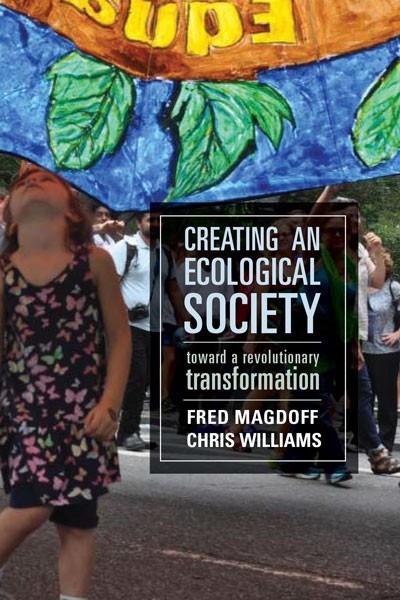Shlomo Sand
Shlomo Sand | |
|---|---|
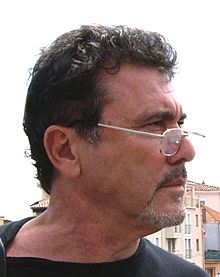 | |
| Born | 10 September 1946 |
| Academic background | |
| Education | 1978–1982, Doctoral student at the École des Hautes Études en Sciences Sociales |
| Academic work | |
| Era | Contemporary |
| Institutions |
|
| Main interests | History of Jews |
| Notable works | The Invention of the Jewish People[1] |
| Notable ideas | Non-Zionism |
Shlomo Sand (pronounced Zand; Hebrew: שלמה זנד; born 10 September 1946) is an Israeli Emeritus Professor of History at Tel Aviv University.[2][3][4][5][6]
Biography
Sand was born in Linz, Austria, to Polish Jewish survivors of the Holocaust. His cultural background was grounded in Yiddish culture. His father, having taken an aversion to rabbis, abandoned his Talmudic studies at a yeshiva and dropped attendance at synagogues, after his mother was denied a front seat after her husband's death, and they could not afford the seat price.[7][8] Both his parents had Communist and anti-imperialist views[citation needed] and refused to accept compensation from Germany for their suffering during the Second World War. Sand spent his first two years in a displaced persons camp near Munich, and moved with the family to Jaffa in 1948, where his father got a job as night porter in the headquarters of the local Communist party.[7] He was expelled from high school at the age of sixteen,[9][10] studied electronics by night and found employment by day in a radio repair business.[7] Drafted in 1965, he served at the communist kibbutz of Yad Hanna.[7] According to one interview, "Sand spent the late 1960s and early 1970s working a series of odd jobs, including several years as a telephone lineman." He completed his high-school work at age 25 and spent three years in the military.[11] The Six-Day War, in which he served – his unit conquered at heavy loss the Abu Tor area in East Jerusalem[7] – pushed him towards the radical left.[11] After the war he served in Jericho, where, he says, Palestinians trying to return to the country were gunned down if they infiltrated at night, but were arrested if caught doing so by day. Such experiences, one incident in particular,[7] left him with a sense that he had lost his homeland.[7] Quitting the Union of Israeli Communist Youth (Banki), he joined the more radical, and anti-Zionist, Matzpen in 1968. He resigned from Matzpen in 1970 due to his disillusionment with the organisation.[9][12][13]
Declining an offer by the Israeli Maki Communist Party to be sent to do cinema studies in Poland, Sand graduated with a BA in History from Tel Aviv University in 1975. Determined to "abandon everything" Israeli,[14] he moved to France, where, from 1975 to 1985, after winning a scholarship, he studied and taught in Paris, receiving an MA in French History and a PhD for his thesis on Georges Sorel and Marxism.[15] Since 1982, Sand has taught at Tel Aviv University as well as at the University of California, Berkeley, and the École des hautes études en sciences sociales in Paris.[2]
In 1983, according to one source, Sand "took part in a heated exchange over Zeev Sternhell's Ni droite, ni gauche: l’idéologie fasciste en France, and later drew the ire of Claude Lanzmann with his 2002 book in Hebrew, Film as History, in which he not only passed scathing judgement on Lanzmann's Shoah, but also revealed that the film had been secretly funded by the Israeli government."[10]
Views
While acknowledging "the affinity between Jews and the holy land," Sand has said that "I don't think the religious affinity to the land gives you historical right." Still, he supports Israel's existence "not because of historical right, but because of the fact that it exists today and any effort to destroy it will bring new tragedies." He explained that he doesn't call himself a Zionist, but "a post-Zionist and non-Zionist because the justification of this land is not historical right."[16]
Comparing the Palestinians to children of rape, Sand has said that Israel "raped a population. And not only a population – we destroyed this society, in constituting the Israeli state." He opposes the Law of Return and the right of return. Still, "Israel has to be the state of Israelis. That is the only way we can continue to live in the Middle East." He argues that before Hitler, Jews were overwhelmingly against Zionism, and the concept of "Eretz Israel" was not about an earthly homeland but about something more spiritual. He also opposes the one-state solution because, while "very very popular in leftist circles," it is "not serious" because Israelis, being "one of the most racist societies in the western world," will never accept it. Thus he supports a "two state solution on the borders of ’67, taking out most of the settlers. I don’t think it will be a big problem."[16] His position on the formation of a national identity extends to Palestinians, who did not, in his view, exist as a people before the rise of Zionism.[7]
Criticism of gene studies
Sand argues both against the notion of defining a nation based on genetic principles, and against the concrete results and reliability of genetic studies focusing on ethnic markers.
In 2010, when Harry Ostrer, a professor of genetics at the Albert Einstein College of Medicine, announced the results of a DNA study showing "powerful genetic markers of Jewish ancestry," Sand told Science Magazine that "Hitler would certainly have been very pleased." Writing in The Chronicle of Higher Education, Josh Fischman commented that Sand's argument in The Invention of the Jewish People that Jews arose from multiple conversions among various communities in Europe and elsewhere contradicted work by Harry Ostrer which argued that "geographically and culturally distant Jews still have more genes in common than they do with non-Jews around them," and that such genes were of Levantine origin," including the area where modern Israel is situated. Ostrer himself took offense at Sand's attack on his work: "Bringing up Hitler was overheated and misconstrues my work," he said. Sand reiterated his criticism, writing in an email to Fischman that "It is a shame for somebody who defines himself as a Jew to look for a Jewish gene."[17]
Geneticist Dr. Eran Elhaik has published two research papers which cite Sand's work extensively. The first, "The Missing Link of Jewish European Ancestry: Contrasting the Rhineland and the Khazarian Hypotheses", came out in December 2012 argued that genetic evidence points to a "mosaic of Near Eastern-Caucasus, European, and Semitic ancestries" within the founding population of modern European Jews.[18] The theory proved highly controversial, and was contested by a number of historians and several geneticists.[19] Elhaik's second paper, in collaboration with others, similarly used Sand's work and concluded that the Ashkenazi descend from 'a heterogeneous Iranian population, which later mixed with Eastern and Western Slavs and possibly some Turks and Greeks in the territory of the Khazar Empire around the 8th century A.D.'[20]
Book publications
The Invention of the Jewish People
Sand’s best-known book in English is The Invention of the Jewish People, originally published in Hebrew (Resling, 2008) as Matai ve’eich humtsa ha‘am hayehudi? (When and How Was the Jewish People Invented?) and translated into English the following year (Verso, 2009). It has generated a heated controversy.[21][22][23][24][25][26]
Sand was criticized for presenting "dubious theories" regarding Jewish identity as historical facts.[27] One provocative theory espoused by Sand, but challenged by other historians as "a myth with no factual basis," is the claim that Ashkenazi Jews are descended from Khazars, who purportedly converted in the early Middle Ages.[28]
The book was in the best-seller list in Israel for nineteen weeks.[1] It was reprinted three times when published in French (Comment le peuple juif fut inventé, Fayard, Paris, 2008). In France, it received the "Prix Aujourd'hui", a journalists' award given to a non-fiction political or historical work.[29] An English translation of the book was published by Verso Books in October 2009.[30] The book has also been translated into German, Italian, Spanish, Portuguese, Arabic, Russian, and Slovene and as of late 2009 further translations were underway.[31][32][33][34][35][36] The Invention of the Jewish People has now been translated into more languages than any other Israeli history book.[34]
The Invention of the Land of Israel
In April 2012, a sequel, The Invention of the Land of Israel, was published in Hebrew by Kinneret Zmora-Bitan Dvir. It was published in English in 2013.[37][38]
How I Stopped Being a Jew
In 2013, Sand published a book entitled How I Stopped Being a Jew (ISBN 978-2081278363, ISBN 978-1781686140). The book examines the question of Jewish identity and the distinction between being a Jew and being Israeli. It also examines the identity of Israel, with a focus on the country's relationship, as a "Jewish state," to Jews around the world and to its non-Jewish citizens.[39] He expresses a desire to break with what he sees as a "tribal Judeocentrism" subject to the "caprices of the sleepwalking sorcerers of the tribe," expressing a deep attachment to the Hebrew language and to a secular ideal of Israel.[8]
The End of the French Intellectual
Sand's 2016 book La fin de l'intellectuel français? was published in English in 2018 as The End of the French Intellectual (with the question mark omitted). It is a critique of three contemporary French intellectuals, Michel Houellebecq, Eric Zemmour and Alain Finkielkraut.[40][41]
List of publications
- L'Illusion du politique, Paris, La Découverte, 1984 (ISBN 2-7071-1518-5).
- Intellectuals, Truth and Power: From the Dreyfus Affair to the Gulf War, Tel Aviv, Am Oved, 2000 (in Hebrew, ISBN 965-13-1439-7).
- Le XXe siècle à l'écran, Paris, Seuil, 2004 (ISBN 2-02-056916-7, also in Hebrew and Spanish).
- Historians, Time and Imagination, Tel Aviv, Am Oved, 2004 (in Hebrew ISBN 965-1317337).
- The Words and the Land, Los Angeles, Semiotext, 2011 (ISBN 978-1584350965, also in French).
- The Invention of the Jewish People, London, Verso, 2009 (ISBN 978-1844674220, also in Hebrew, French, German, Arabic, Italian, Russian, Japanese, Hungarian, Swedish, Slovene, Spanish, Chinese, Brazilian, Polish, Turkish, Bulgarian, Croat, Portuguese, Greek, Czech, Korean).
- The Invention of the Land of Israel, London, Verso, 2012 (ISBN 978-1844679461, also in Hebrew, French, German, Arabic, Russian, Spanish, Chinese, Brazilian, Polish, Persian, Czech).
- How I Stopped being a Jew, London, Verso, 2014 (ISBN 978-1781686980, also in Hebrew, French, German, Arabic, Italian, Russian, Spanish, Brazilian, Polish).
- Twilight of History, London, Verso, 2017 (ISBN 978-1786630223, also in Hebrew and French).
- La Fin de l'intellectuel français ?, Paris, La Découverte, 2016 (ISBN 978-2-7071-8939-4).
- J. Julliard & S. Sand (eds.), Georges Sorel en son temps, Paris, Seuil, 1985 (ISBN 2-02-0089785).
- H. Bresheeth, M. Zimmerman & S. Sand (eds.), Cinema and Memory, Jerusalem, Zalman Shazar, 2004 (ISBN 965-2271918, in Hebrew).
- S. Sand (ed.), Ernest Renan – On the Nation and the ‘Jewish People. London, Verso, 2010, (ISBN 978-1844674626, also in French and Hebrew).
References
- ^ a b Strenger, Carlo (2009-11-27). "Shlomo Sand's 'The Invention of the Jewish People' is a success for Israel". Haaretz. Retrieved 2014-10-13.
- ^ a b CV on the Tel Aviv University website Retrieved 21 February 2015
- ^ "VersoBooks.com". Retrieved 21 February 2015.
- ^ "Shlomo Sand to secular Jews: I'm not Jewish and neither are you". Haaretz.com. 15 November 2014. Retrieved 21 February 2015.
- ^ "Israeli historian wants 'to cease' being a Jew - The Times of Israel". The Times of Israel. Retrieved 21 February 2015.
- ^ "BBC Radio 3 - Night Waves, What does Shlomo Sand have to say about the land of Israel?". BBC. Retrieved 21 February 2015.
- ^ a b c d e f g h Dalia Karpel, 'Author of 'The Invention of the Jewish People' vents again,' Haaretz 24 May 2012:'One night in September 1967 he witnessed soldiers abusing an elderly Palestinian man who had been arrested with a large amount of dollars in his possession. "I climbed onto a crate and watched a harrowing scene through the window," he writes. "The detainee was sitting tied to a chair, and my good buddies were beating him all over and occasionally pressing burning cigarettes into his arms. I climbed down from the crate, threw up and returned to my post shaking and frightened. A little later, a pickup left carrying the body ... My friends shouted to me that they were going to the Jordan River to dump the body".'
- ^ a b Shlomo Sand,'Shlomo Sand: ‘I wish to resign and cease considering myself a Jew’,' The Guardian 10 October 2014.
- ^ a b History as Film Archived 2007-09-27 at the Wayback Machine, (in Hebrew) Shiur Hofshi (Free Period) no 67, June 2005, Israeli Teachers' Union
- ^ a b "CONVERTS TO COLONIZERS?". New Left Review.
- ^ a b "Caught in the history wars". Sydney Morning Herald.
- ^ Matzpen –The Socialist Organization in Israel (Archive). Retrieved 21 February 2015
- ^ Conversation with Shlomo Sand Archived 2009-03-15 at the Wayback Machine, (in Hebrew) by Asaf Shor, Me'asef, 10 December 2004
- ^ Halkin, Hilel. "Indecent Proposal". New Republic.
- ^ PhD Thesis: Georges Sorel et le marxisme. Rencontre et crise 1893–1902. (Georges Sorel and Marxism. Encounter and crisis 1893–1902), École des hautes études en sciences sociales, Paris, France, 1982.
- ^ a b Weiss, Philip. "Shlomo Sand on Zionism, post-Zionism, and the two-state solution". Mondoweiss.
- ^ Fischman, Josh (Apr 15, 2012). "The Chosen Genes". The Chronicle Review.
- ^ Elhaik, Eran. "The Missing Link of Jewish European Ancestry: Contrasting the Rhineland and the Khazarian Hypotheses". Genome Biology and Evolution. Archived from the original on 2013-01-20.
- ^ Shaul Stampfer, 'Are We All Khazars Now?,' Jewish Review of Books Spring 2014.
- ^ Eran Elhaik, Ranajit Das, Paul Wexler and Mehdi Pirooznia,'Localizing Ashkenazic Jews to primeval villages in the ancient Iranian lands of Ashkenaz,' Genome Biology and Evolution,3 March 2016.
- ^ Sela, Maya (March 12, 2009). "Israeli wins French prize for book questioning origins of Jewish people". Haaretz. Retrieved November 18, 2009.
- ^ Hastings, Max (November 15, 2009). "The Invention of the Jewish People by Shlomo Sand". The Sunday Times. Retrieved November 29, 2009.
- ^ Judt, Tony (2009-12-07). "Israel Must Unpick Its Ethnic Myth". The Financial Times. Retrieved 2010-03-07.
- ^ Balter, Michael (June 3, 2010). "Tracing the Roots of Jewishness". Science. Archived from the original on June 6, 2010. Retrieved June 10, 2010.
- ^ Begley, Sharon (June 3, 2010). "The DNA Of Abraham's Children". Newsweek. Retrieved June 10, 2010.
- ^ Wade, Nicholas (June 9, 2010). "Studies Show Jews' Genetic Similarity". New York Times. Retrieved June 10, 2010.
- ^ COHEN, PATRICIA. "Book Calls Jewish People an 'Invention'". New York Times. Retrieved 22 January 2017.
- ^ Aderet, Ofer (June 26, 2014). "Jews Are Not Descended From Khazars, Hebrew University Historian Says". Haaretz. Retrieved 22 January 2017.
- ^ "Prix Aujourd'hui". Prix Litteraires.net. 2010-02-12. Retrieved 2010-03-16.
- ^ The Invention of the Jewish People Archived 2009-08-21 at the Wayback Machine, English Edition (Verso Books, 2009)
- ^ Die Erfindung des jüdischen Volkes: Israels Gründungsmythos auf dem Prüfstand. Propyläen. 2010. ISBN 978-3549073766.
- ^ L'invenzione del popolo ebraico. Rizzoli. 2010. ISBN 978-8817044516.
- ^ "Livraria da Folha - Catálogo - A Invenção do Povo Judeu". Livraria.folha.com.br. Retrieved 2013-05-15.
- ^ a b Sarah (2009-11-11). "BBC says Shlomo Sand's The Invention of the Jewish People is "an international news story"". Inventionofthejewishpeople.com. Archived from the original on 2013-07-08. Retrieved 2013-05-15.
- ^ "المعرفة - كتب -اختراع الشعب اليهودي". Aljazeera.net. 2011-05-24. Retrieved 2013-05-15.
- ^ "Изобретение изобретения О книге Шломо Занда "Когда и как был изобретен еврейский народ?"". Booknik.ru. 2010-06-08. Retrieved 2013-05-15.
- ^ Sand, Shlomo (20 November 2012). The Invention of the Land of Israel: From Holy Land to Homeland. ISBN 978-1844679461.
- ^ "ספרים חדשים (New Books)". Haaretz. 4 April 2012. Retrieved 28 April 2012.
- ^ Sand, Shlomo (2013). How I Stopped Being a Jew. Verso. ISBN 9781781686140.
- ^ Rogachevsky, Neil (26 December 2018). "The Return of Shlomo Sand". Mosaic. Retrieved 26 December 2018.
- ^ Jeffries, Stuart (4 May 2018). "The End of the French Intellectual by Shlomo Sand review – from Judeophobia to Islamophobia". The Guardian. Retrieved 17 February 2019.
External links
- The Invention of the Jewish People, English Edition (Verso Books, 2009) Website
- Anita Shapira, Review Essay: The Jewish-people deniers, The Journal of Israeli History, Vol. 28, No. 1, March 2009, 63-72 (in English)
- "Comment le peuple juif fut inventé" ("How the Jewish People was invented") by Shlomo Sand, Le Monde diplomatique, August 2008
- Zionist nationalist myth of enforced exile: Israel deliberately forgets its history by Shlomo Sand, Le Monde diplomatique, September 2008
- Boycott Ariel college by Shlomo Sand, Haaretz
- "Are the Jews an invented people?", Eric Rouleau, Le Monde diplomatique - English edition (May 2008).
- Martin Goodman, The Times Literary Supplement (TLS), 26 February 2010; Shlomo Sand responds, TLS, Letters to the Editor, 10 March 2010; Martin Goodman responds, TLS, Letters to the Editor, 24 March 2010
- Video of discussion on YouTube between Avi Shlaim and Shlomo Sand. Chaired by Jacqueline Rose at the Frontline Club, London, 12 November 2009
- Shlomo Sand interview on YouTube: 'There are Israeli, not Jewish people' on Russia Today. Uploaded to YouTube 4 Aug 2009.
- Video of lecture on YouTube titled "How I Stopped Being A Jew" by Shlomo Sand at SOAS, University of London, 14 October 2014.
- Shlomo Sand, Je Suis Charlie Chaplin - A Fetid Wind of Racism Hovers Over Europe (January 2015), CounterPunch
- Shlomo Sand, Why I Cannot be a Zionist: an Open Letter to Emmanuel Macron (August 2017), CounterPunch
- 1946 births
- Living people
- Israeli historians
- Historians of Jews and Judaism
- Historians of France
- Intellectual historians
- Post-Zionists
- Film theorists
- Tel Aviv University faculty
- Tel Aviv University alumni
- Israeli people of Austrian-Jewish descent
- Israeli people of Polish-Jewish descent
- Austrian people of Polish descent
- People from Linz
- Austrian emigrants to Israel

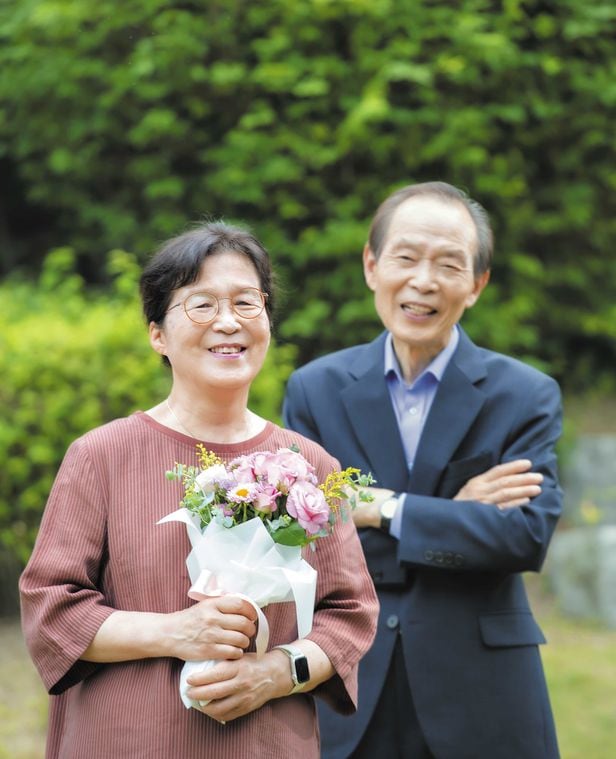
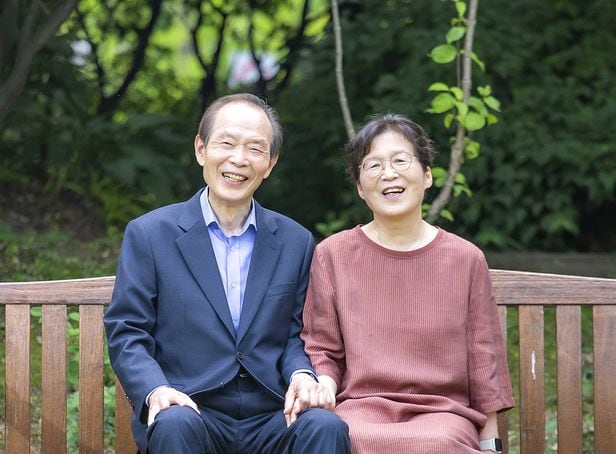
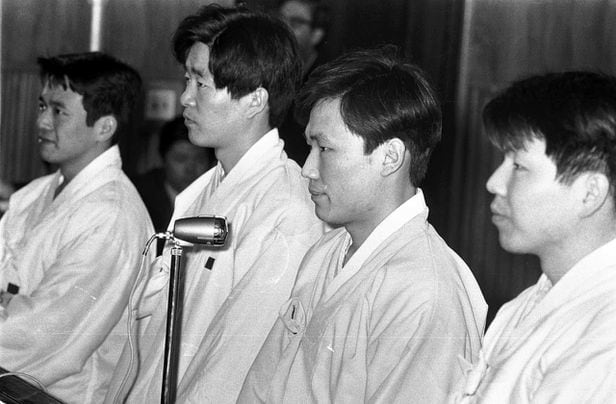
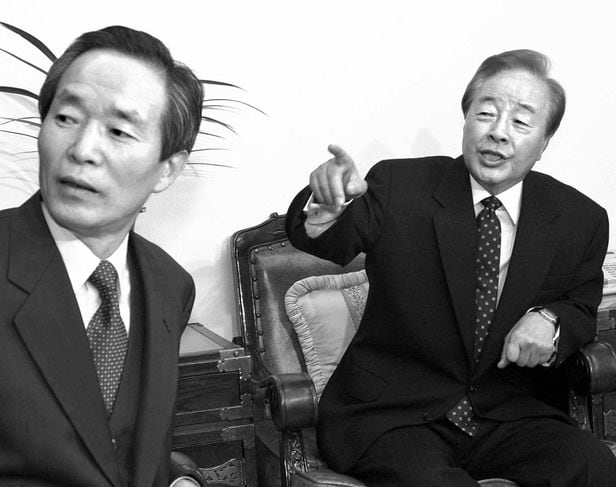
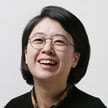
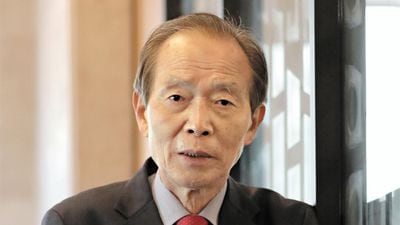
 With some 11m hectares of salt-affected lands, Ethiopia ranks first in Africa in terms of soil salinity caused by human activities and natural factors. This is a big problem for the second most populous country in the continent where agriculture accounts for 40 percent of the GDP, 80 percent of the total employment and 70 percent of the exports. (Photo: ICBA)
With some 11m hectares of salt-affected lands, Ethiopia ranks first in Africa in terms of soil salinity caused by human activities and natural factors. This is a big problem for the second most populous country in the continent where agriculture accounts for 40 percent of the GDP, 80 percent of the total employment and 70 percent of the exports. (Photo: ICBA)